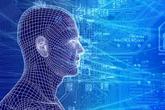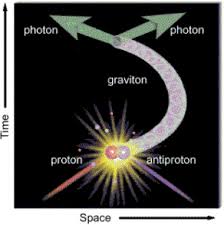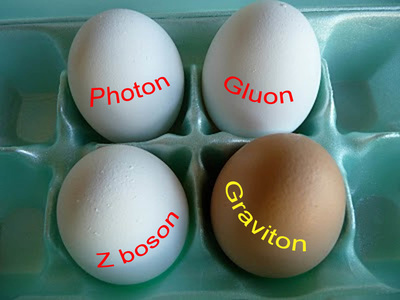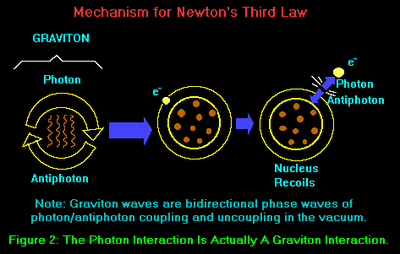
There are mysteries out there - and therefore in here - which boggle the minds of scientists all over the world. It's not that these things are peculiar, or rare, or in any way divorced from reality, it's just that they're difficult to pin down.
Few people really thought about information as a cosmic precept until Stephen Hawking came up with Hawking Radiation, proving that black holes emit information signatures along with light and gravitational waves. What information actually is, however, may pose as big a question as any other, hence the debate Hawking has had with himself. Brian (in the lounge) agreed that perhaps it is itself a form of energy, for he pointed out that with information we create things, and we change things, and we make concepts for ourselves that we share with others and they in turn share and so on, ad infinitum.
Gravity has proved a difficulty for the scientific community for some time, being a force of nature which doesn't seem to be traceable in particle format, or measurable in any way other than its relationship with mass. Add gravity to the Standard Model of the atom in its mathematical format, however, and the whole neat equation reverts to infinity, a subject which once got me into hot water in a dinner queue at the Paris Cosmology Colloquium. But it's an undeniable truth, however many professors choose to run away from it crying, "Different science, different science," which actually happened! It's not different science - all science does is take information and turn it into answers, which themselves tend to beg questions, giving rise to the need for more information.

Wayne Dyer calls the concept of aloneness whilst all being one conscious collective the ‘onesong'. He takes note of the letter separating ‘alone' and ‘all one', that letter being L, and in interpretation of that fact he likes to attribute L to Love. Is he wrong? Wayne Dyer writes a lot of sensible stuff, and people who read it will, I strongly suspect, connect with it easily in some aspect of themselves. We don't have to go far to feel the truth, we have only to be presented with it in order to recognise the possibility of its being there. Truth can sometimes be uncomfortable, and the self can choose to discard it accordingly, but the binary system of universal information appears to suggest that something either Is, or it Isn't. Can the singularity within the individual be selective about truth, in terms of it being (Is) or otherwise (Isn't)?
Whether love is or isn't in the equation of our immediate relationships is perhaps as tenable or untenable as the formulas to which scientists cleave their faith in ‘discovering' new particles, digging into the depths of electromagnetism to uncover mesons and bosons and pions which the mathematics tells them must be there, somewhere. Gravity, however, escapes particle accelerators and photo-electric traps to remain ambiguous, and infinity is just a thorough nuisance, a factor which requires of the physicists and mathematicians to ‘renormalise' their data in order to get rid of it.
As the greatest mystery known to modern man, love carries the inevitable tagline of ‘whatever that is', famously coined by princes and a lot of other people besides. Whatever it is, the probability that it's some form of energy is almost a given to most, the possibility that it's infinite has a funny way of weaving itself into a lot of songs, and the philosophy that perhaps it's got some kind of gravity attached to it does link neatly with the language we use in relation to the concept - ‘deep', ‘heavy', and ‘light', for example, plus the fact that it can send us tumbling, we ‘fall' into it, find ourselves on rollercoasters and wonder how on Earth to keep ourselves from getting too ‘high'.
We're searching for answers to questions, as slaves to the universal requirement for information. How we go about getting that information is a matter of personal circumstance, but we tend to be driven to share it, to use it, to create with it and develop concepts that make sense. Whatever it is, it's valuable, it changes our lives as we go along, and it helps us to trust the enormity of the ‘great scheme of things' in which our voluntary - or involuntary - input to the system of cause and effect enables the Universe to trace the ongoing subject of What Is, versus What Isn't.



 RSS Feed
RSS Feed
